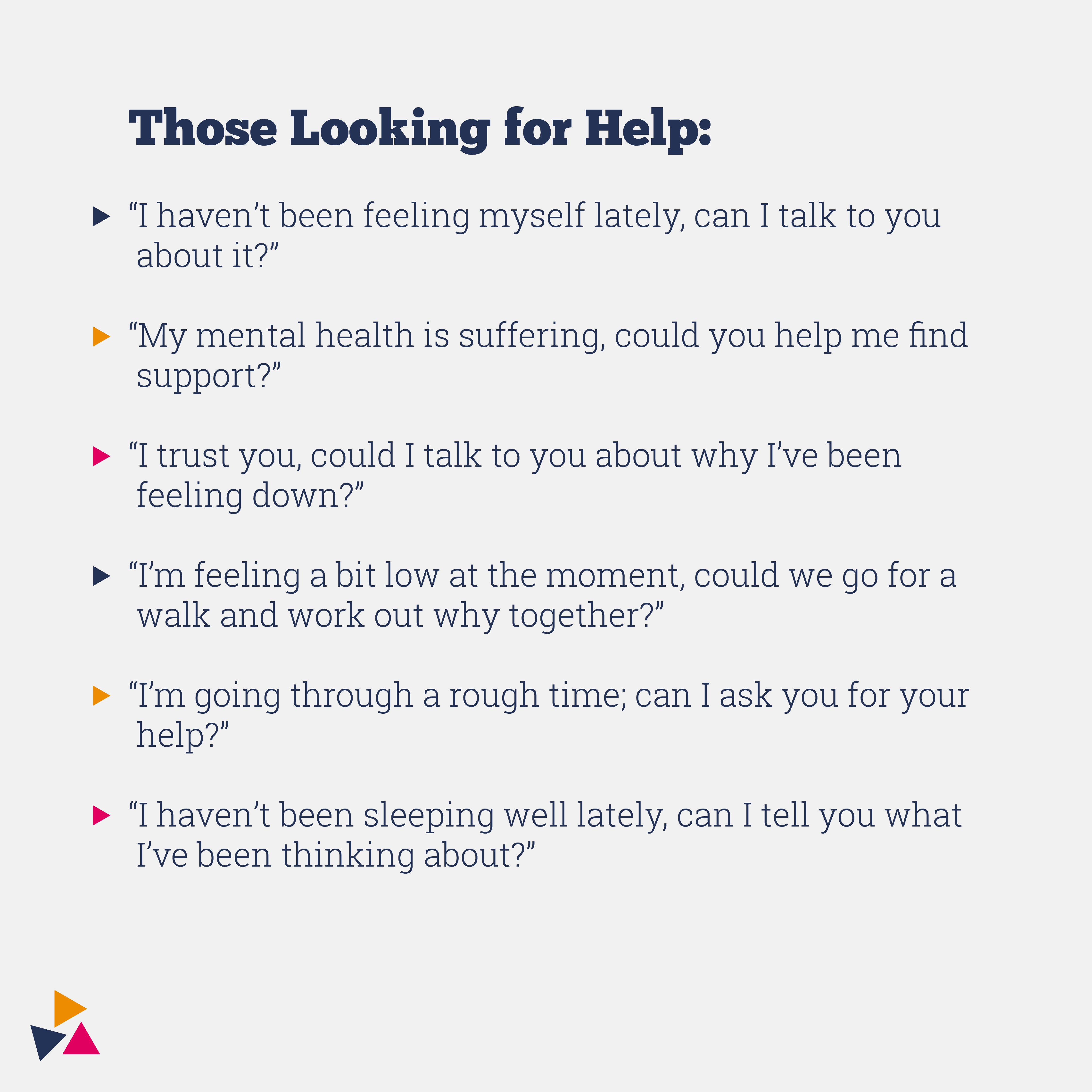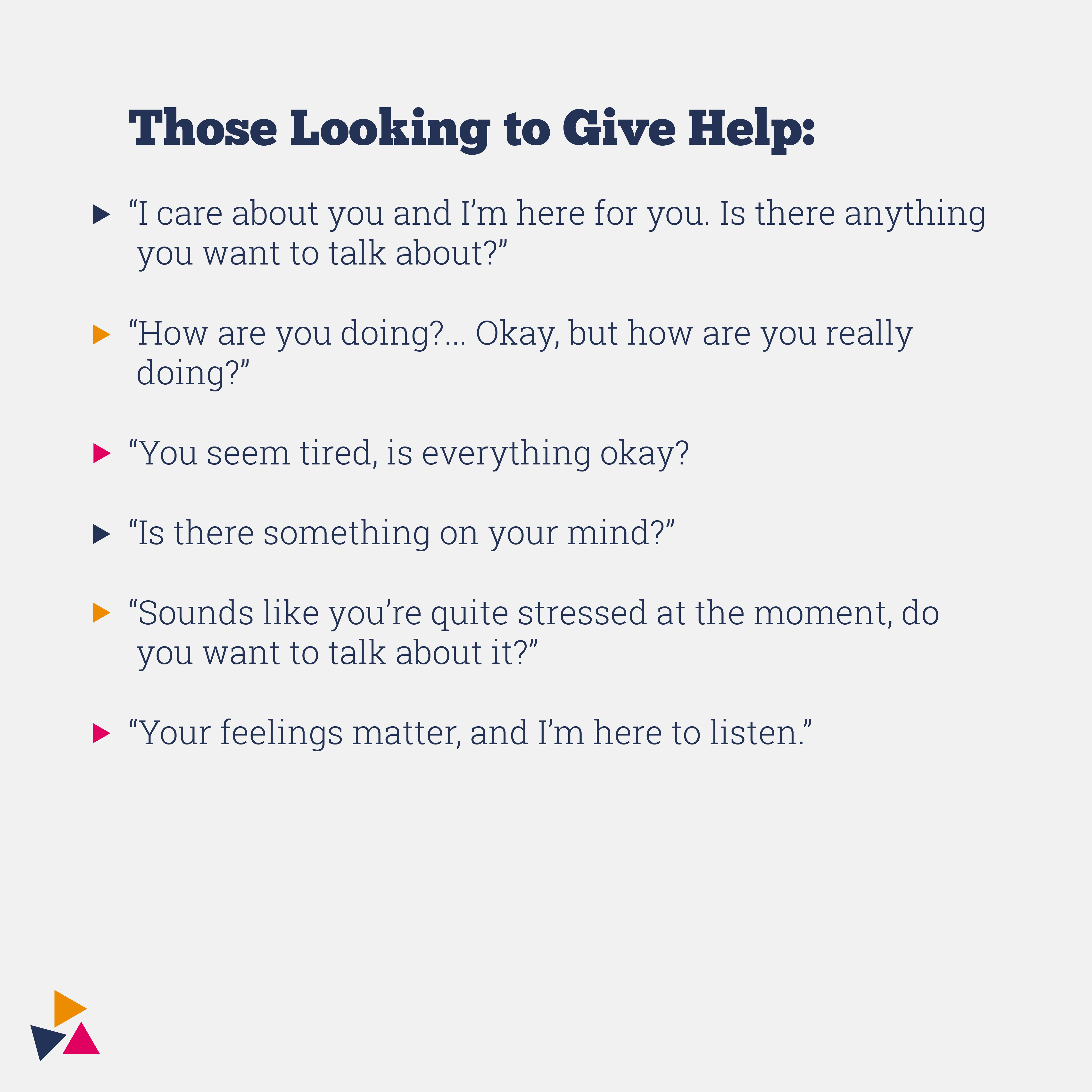Although we may know that we have an accepting and loving support system around us, it can be difficult to talk to our friends and family about our mental health and wellbeing. Often the fear of judgement from those closest to us and the subsequent embarrassment prevents us from speaking out on our feelings.
Alternatively, we may notice someone that we’re close to hasn’t been their usual self and seems to be suffering in silence. Although we want to talk to them, it can be just as difficult to know how to ask the right questions.
However, talking about mental health, whether you’re the one suffering or not, is always the first step to finding the right help and support. Talking to family and friends helps to lessen the mental load you may be experiencing, while staying silent can sometimes have dangerous consequences for the one suffering.
This is why Time to Talk Day is so important, so that more awareness is raised around the prominence of speaking out on mental health and wellbeing issues. It’s time to break the stigma around talking about mental health with others.
Silence is Not Always Golden
As a society, we’re so often trained into keeping our thoughts and feelings to ourselves, and unfortunately, suffering in silence has become the norm, a the phenomenon Mind calls ‘the British reserve’. In their study from 2019 in partnership with McVitie’s, Mind found that 46% of British adults said that they keep their worries to themselves despite 82% believing meaningful conversation would be beneficial to their mental health. The study also found that 19% of adults who live with someone spend 10 minutes or less a day having a meaningful conversation with the other person/people they live with.
From this study, we can see that as a society we want to be able to openly talk about our mental health and wellbeing, but as the study also found, fears of being judged, showing weakness and feeling embarrassed prevent this from happening in some cases. By not discussing the emotions we’re experiencing we can actually isolate ourselves from those closest to us, both emotionally and physically. Talking with others, whether that’s friends, family, or community groups, lightens the heavy burden that mental ill-health can have on us; carrying the weight alone is isolating, challenging, and can eventually lead to burnout. Charities Mind and Rethink Mental Illness are hoping to break the stigma of keeping feelings tight-lipped with their awareness day, Time to Talk Day.
What is Time to Talk Day?
Run by Mind and Rethink Mental Illness, Time to Talk Day has been celebrated on February 2nd since 2014 and is all about encouraging people to start conversations about mental health. All of us have mental health, and some have better mental heatlh than others, but it’s undeniable that being able to talk about our feelings with others has the power to change someone’s day, or even their life, for the better.
The aim of Time to Talk Day is to get people and communities feeling more comfortable opening up about their mental health and wellbeing. By having more and more conversations about how we’re feeling, this will help to breakdown the stigma some people associate with mental health. In turn, those suffering will feel empowered to speak out and seek the help they need, and it will also help others feel comfortable to ask questions such as: ‘Are you okay?’ and ‘Do you want to talk about it?’
It isn’t always easy to talk about mental health, but Time to Talk Day has created a variety of resources that are suitable for the workplace, schools, and community groups to utilise to spread the importance of mental health and wellbeing communication.
Making Time to Talk
Once you know what to say, the talking is the easy part; here are some conversation starters for those looking for help and for those looking to give help.


You can also learn more about how to talk to those who are suffering or going through a mental health crisis by training as a mental health first aider. Here at MHFA Wales, we train mental health first aid instructors in a number of disciplines so they can go out and teach workplaces, schools, and communities how to speak to and comfort those who need it most.
To find out more about us, the types of training we provide, or book a course through one of our licensed instructors, visit our website and invest in your wellbeing and the mental health of those around you.

